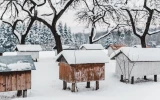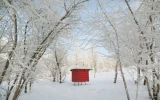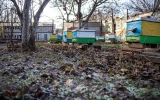What Happens To Bees In the Winter? - Not What You Think
Many people think bees die in the winter, but this is a myth. They are busy protecting their hive and queen—even if it means dying in the process.
During the winter, all worker bees will cluster around their queen. When the temperature drops below 55 degrees, they will flap their wings in order to generate heat. This process is called “shivering” and it helps to keep the temperature of the bee cluster at 93-95 degrees Fahrenheit.
Shivering is an impressive process, as some bees will die due to cold fatigue. But this doesn't mean that all the bees in the hive will die; some may be able to survive as long as they can keep their body temperature up to the required level.
Summary
- In order to survive during the winter, bees generate heat.
- During the winter, bees do not produce honey.
- Bees work extra hard during the winter to keep the hive at its required temperature.
- During the winter, bees remain in the hive to protect their queen.
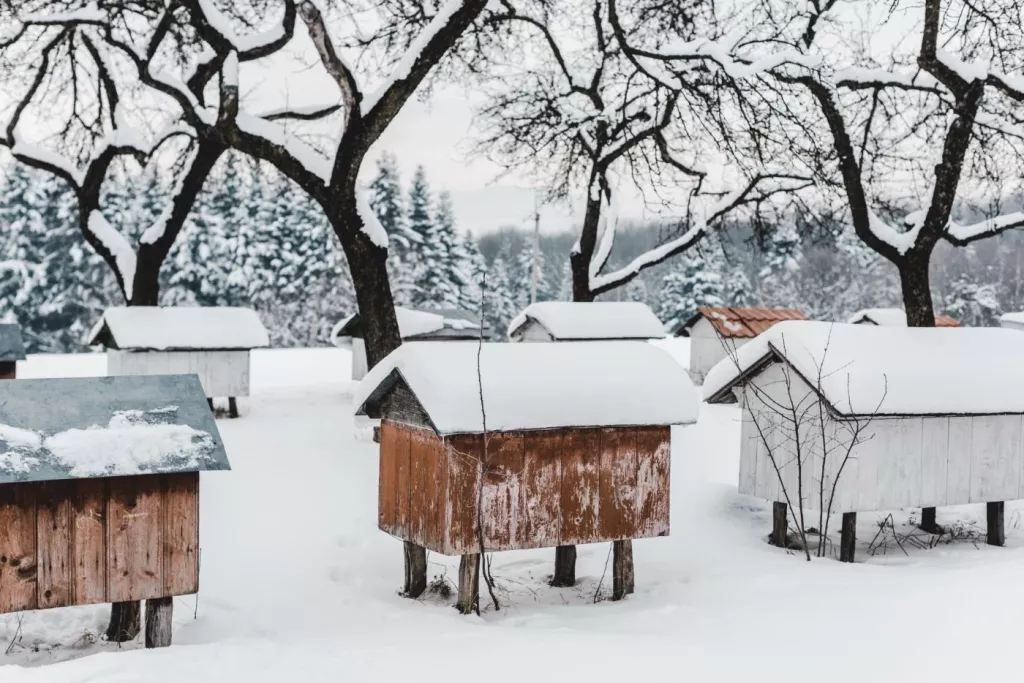
On this page:
Do Bees Die in the Hive in the Winter?
Some, but not all, bees may die in the hive during the winter. Normally, they die when their body temperature reaches 41 degrees Fahrenheit or below. When this happens, their metabolism slows down to the point that they can't recover and eventually die.
However, it's not going to be all gloom and doom, as some of the bees are able to survive the winter despite these harsh conditions. The queen, who is in the center of all the bee activity, is able to survive due to her worker and soldier bees (which cluster around her) acting as a form of insulation.
Unfortunately, some bees are unable to make it through the cold winter months. Bees don't hibernate, and this makes them especially vulnerable to winter conditions.
How Do Bees Survive the Winter?
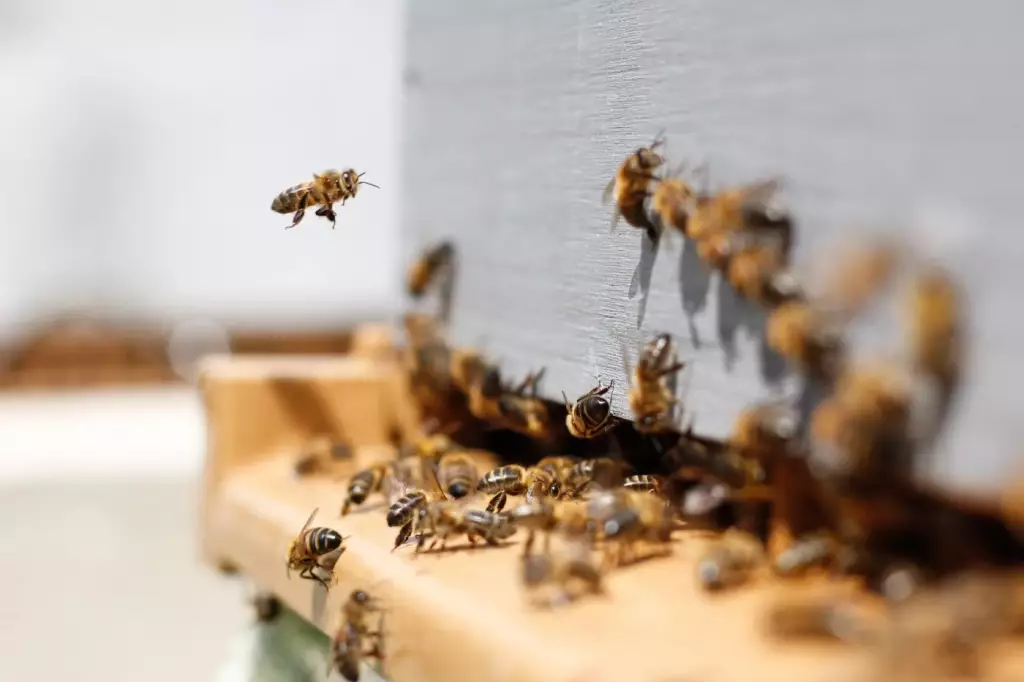
Even though some bees may die in the winter, there are still a few ways for them to survive. The most common way is to store food and water in a separate chamber of the hive called the honeycomb. The bees will fill this chamber with nectar, which they can use as food and water throughout the winter months.
So during the fall, when temperatures begin to drop, the bees will also start to stockpile food and water for their long winter. They may even feed on the honeycomb stored by other bees in their hive.
Another way of surviving is through a process called "clustering,” where all the bees in the hive will group together to form an insulated chamber. This helps to trap heat and keep their body temperatures up so that they can survive.
Lastly, the queen bee is able to survive the winter by eating honey and pollen stored in special chambers of the hive. This helps her stay healthy until springtime, when she can start producing offspring again.
Do Bees Still Make Honey in the Winter?
During winter time, bees, especially honey bees, are busy protecting their queen from the cold weather, and so they don't produce honey during this time. Usually, during the start of fall, when the temperature begins to drop, worker bees are no longer able to go out and collect nectar from flowers.
However, the bees may still gather pollen for their own consumption during this time, but they are no longer able to produce honey. This means that if you're looking for some honey come wintertime, you might have to search elsewhere.
They make sure to collect and preserve their food sources early in the fall so that they can have enough stores to last them through the winter months. This is to keep their queen alive and to ensure the survival of their hive.
Why Do Bees Not Hibernate?
Unlike other animals, honey bees don’t hibernate during the winter. Instead, they rely on a variety of mechanisms to survive the cold weather. This includes clustering around their queen and using their own body heat to keep themselves warm, storing food and water for consumption during the winter months, as well as feeding on pollen and the nectar of flowers.
Honey bees are also able to survive the winter due to their strong social structure, which allows them to work together and protect their queen in order to ensure the hive’s survival. This is why it’s important for beekeepers and other experts to consider how to keep honey bees healthy throughout the winter months.
By taking proper measures to protect the bees in winter, we can help ensure their survival and continue to see these amazing creatures around come springtime.
Where Do Bees Go During Winter?
Unlike other creatures, bees don't go anywhere during the winter. In fact, they stay in the same location throughout all four seasons of the year. This is because there are a lot of resources available to them within their hive: food, water, and shelter from the elements.
Some bees may venture out of their hives for short periods of time in order to collect pollen or water; however, they usually stay close to their homes. Bees also do not migrate like other animals, so they remain in the same location all year.
The main concern for bees during the winter is staying warm and keeping food and water stores stocked. This ensures that their queen is safe and sheltered from cold temperatures, which helps them survive until springtime.
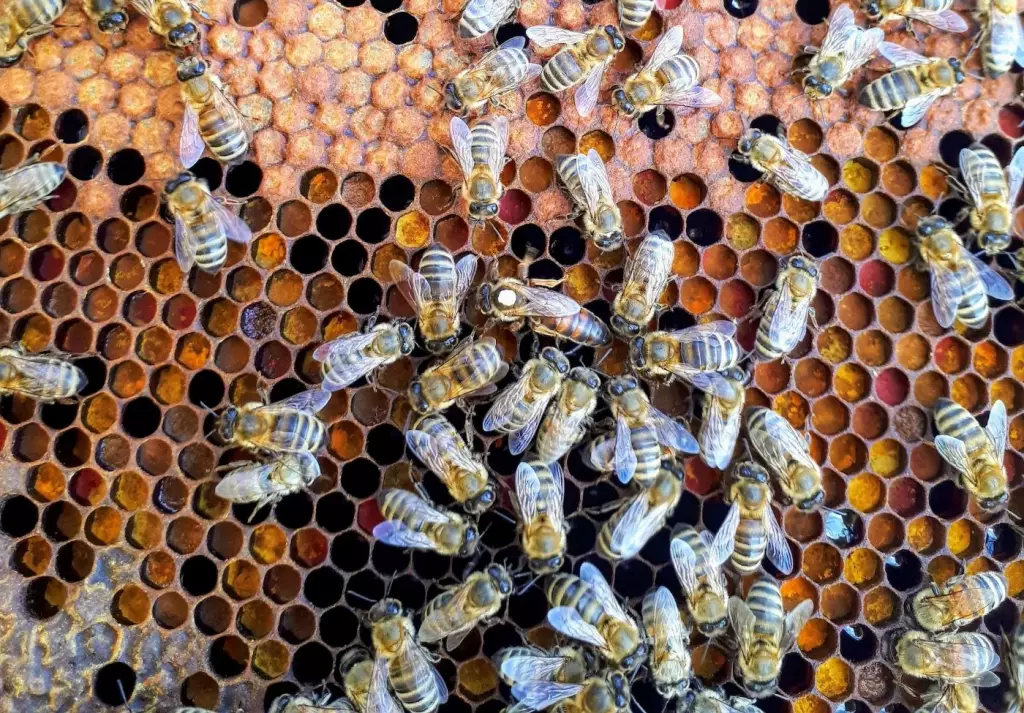
How Can Beekeepers Help Bees Survive the Winter?
Beekeepers can help their bees survive the winter months by taking a few basic steps. Here is how:
Keep preys from entering
Ensure your hive is sealed properly to prevent any predators from entering and preying on the bees. Make sure to check for animals that like to nestle in the hive during the winter months.
Manage hive temperature
Beekeepers can help keep their hives warm by using insulation or other methods to maintain a safe temperature in the hive. This will protect the bees from the cold weather and let them survive until springtime.
Don't take their honey
Beekeepers should not take their bees' honey during the winter months. This can have a detrimental effect on their food stores and impact their ability to survive until springtime.
Check for diseases
It is also important to check for any signs of disease or pests within the hive. If any are found, it is best to address them quickly to prevent any further spread and keep the bees healthy.
By taking these steps, beekeepers can help their hives survive the winter months and be ready for a new season of honey production come springtime.
